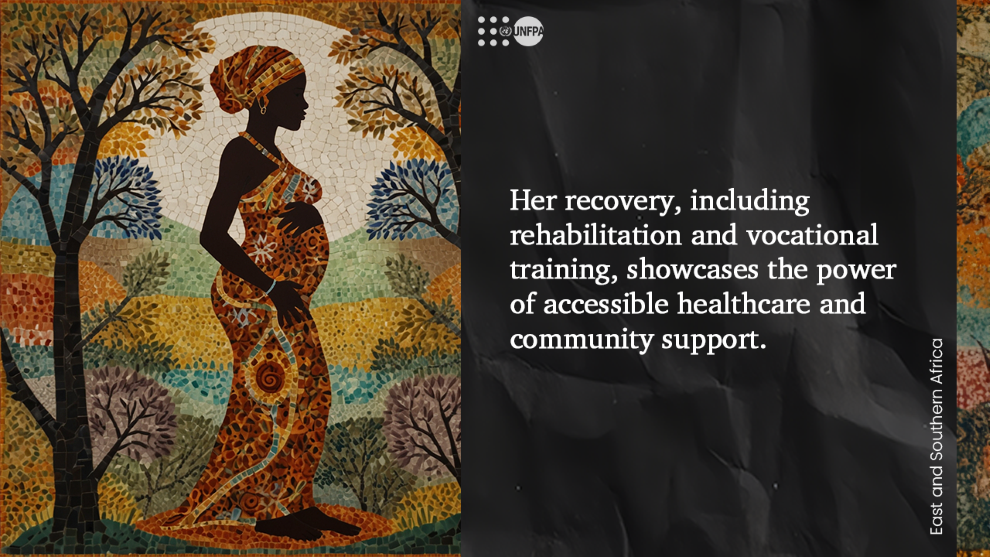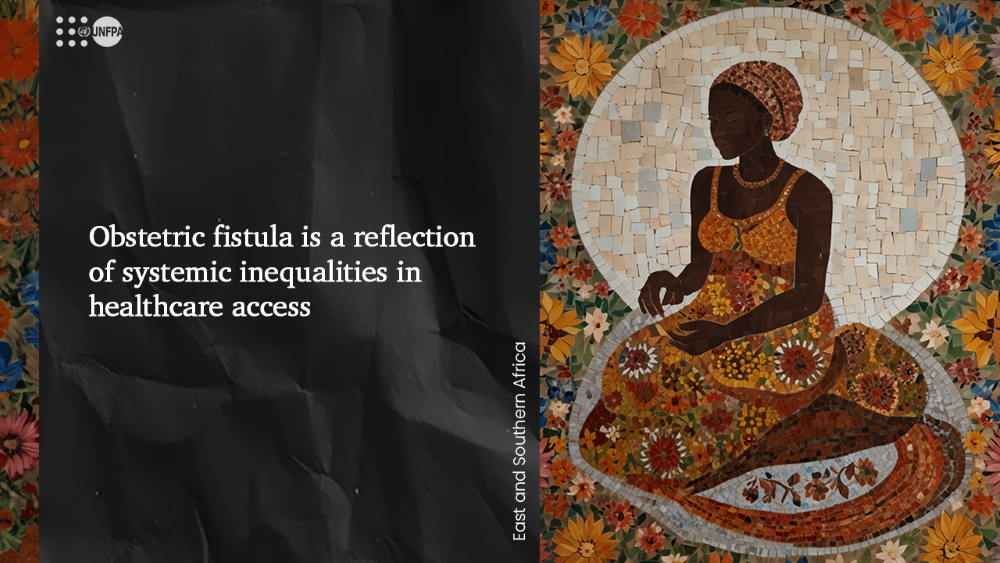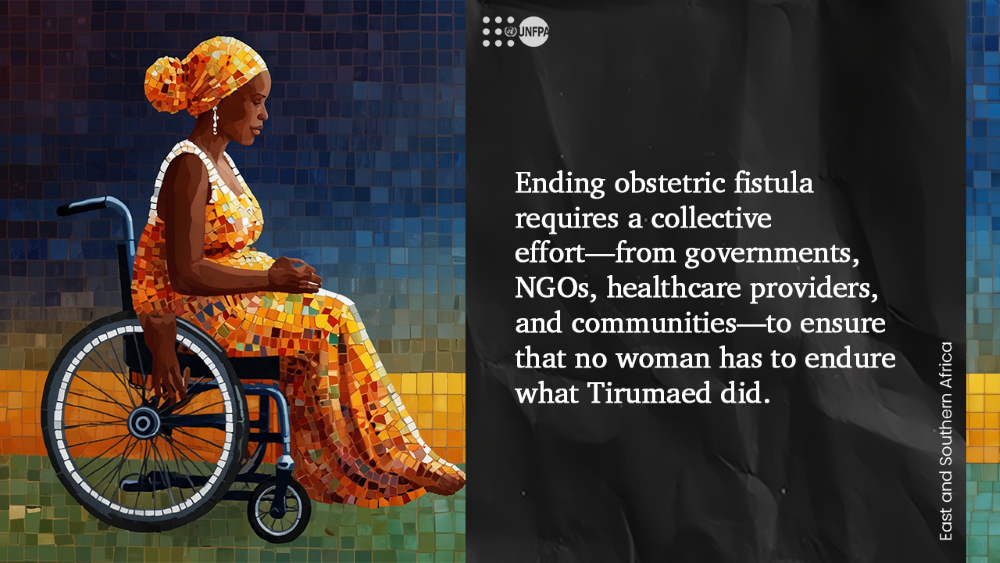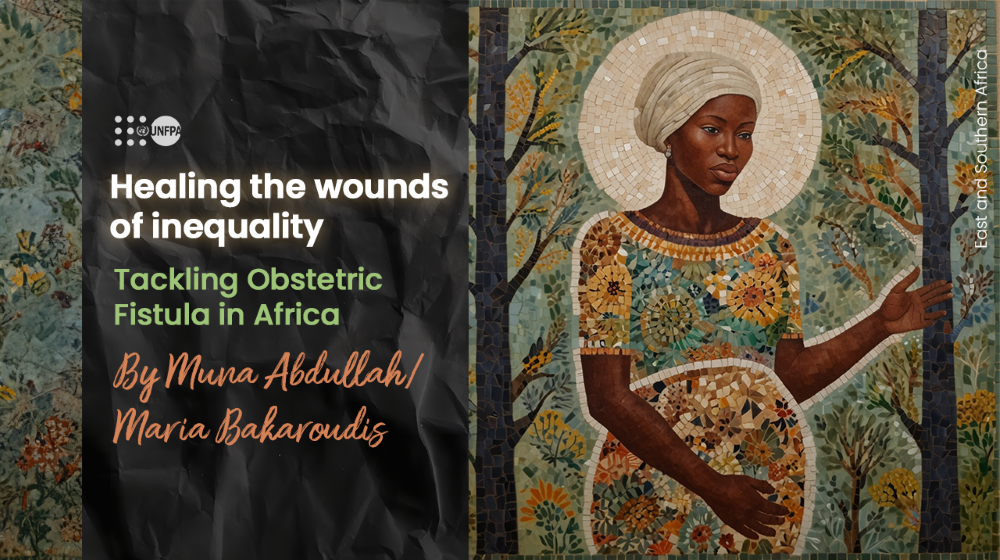By Muna Abdullah, Maria Bakaroudis, and Yousuf Alrawi
Tirumaed, a young woman from Desta Mender, Ethiopia, endured eight days of agonizing labor, a stillbirth, and a devastating childbirth injury known as obstetric fistula, all because she couldn’t access timely medical care.
Disabled in one leg from an early age, her mobility was severely restricted. When the time came for her to give birth, the lack of accessible healthcare left her in prolonged labor. For five days, her family searched for help, eventually taking her to a small clinic. The staff there, however, recognized the severity of her condition and advised her to travel to a larger facility in the Amhara Region's capital.
Fearful she might not survive the journey, her family took her back home. After eight days under intense pain, Tirumaed delivered a stillborn child. But the tragedy didn’t end there. She developed obstetric fistula, a childbirth injury that left her incontinent, and her mobility worsened with both legs now affected. On top of that, her partner abandoned her, and she returned to live with her parents, where she faced social stigma and isolation. For ten months, Tirumaed lived through the physical and emotional pain of this condition.
Things changed for the better when she received life-changing surgery at the Addis Ababa Obstetric Fistula Hospital, which is supported by UNFPA and Hamlin Fistula Ethiopia. Post-surgery, Tirumaed underwent rehabilitation at a center for fistula survivors, where she received physiotherapy for a year. At Desta Mender, she was trained in handicrafts such as knitting, sewing, and embroidery, and she was even able to return to school, reaching the 7th grade. Today, Tirumaed works as a cashier at a café, empowered and self-reliant. “Things have changed for the better for me, thank God,” she says with gratitude.

Her recovery, including rehabilitation and vocational training, showcases the power of accessible healthcare and community support. However, her story also reflects broader systemic challenges, particularly for persons with disabilities many of which such as caused by obstetric fistula are preventable. In many countries obstetric fistula continues to disable thousands of people. Globally, one in six people lives with a disability, yet they remain underrepresented in decision-making processes including the survivors of obstetric fistula, and their unique needs are often overlooked in healthcare systems.
Restoring dignity

Obstetric fistula is a reflection of systemic inequalities in healthcare access. The women most affected are often from marginalized communities, facing barriers like poverty, limited education, and inadequate healthcare systems. In addition, women with disabilities, like Tirumaed, face higher rates of gender-based violence and significant barriers to accessing sexual and reproductive health services. Many are denied their right to bodily autonomy, with over half told not to have children, perpetuating harmful stereotypes about their worth and capabilities.
Programs addressing obstetric fistula must be holistic, focusing not only on treatment but also on prevention, psychological support, and social rehabilitation. In East and Southern Africa, UNFPA continues to support fistula treatment centres and partner with local organizations to repair, treat, and rehabilitate women suffering from this condition. The organization's work extends to helping survivors reclaim their lives through skills training, education, and reintegration programs. UNFPA’s goal is ambitious but achievable–to end obstetric fistulas by 2030.
The stories of survivors like Tirumaed remind us of the strength of women and the power of timely, compassionate intervention. But they also highlight the need for continued investment in healthcare systems and disability inclusion strategy, promoting accessibility and representation across all facets of life.
Towards inclusive and dignified health care

Ending obstetric fistula requires a collective effort—from governments, NGOs, healthcare providers, and communities—to ensure that no woman has to endure what Tirumaed did.
As we move toward 2030, let us keep the focus on every woman’s right to safe childbirth, dignified healthcare, and inclusivity. We have the solution to end obstetric fistula and restore the dignity and rights of thousands of women across Africa.


